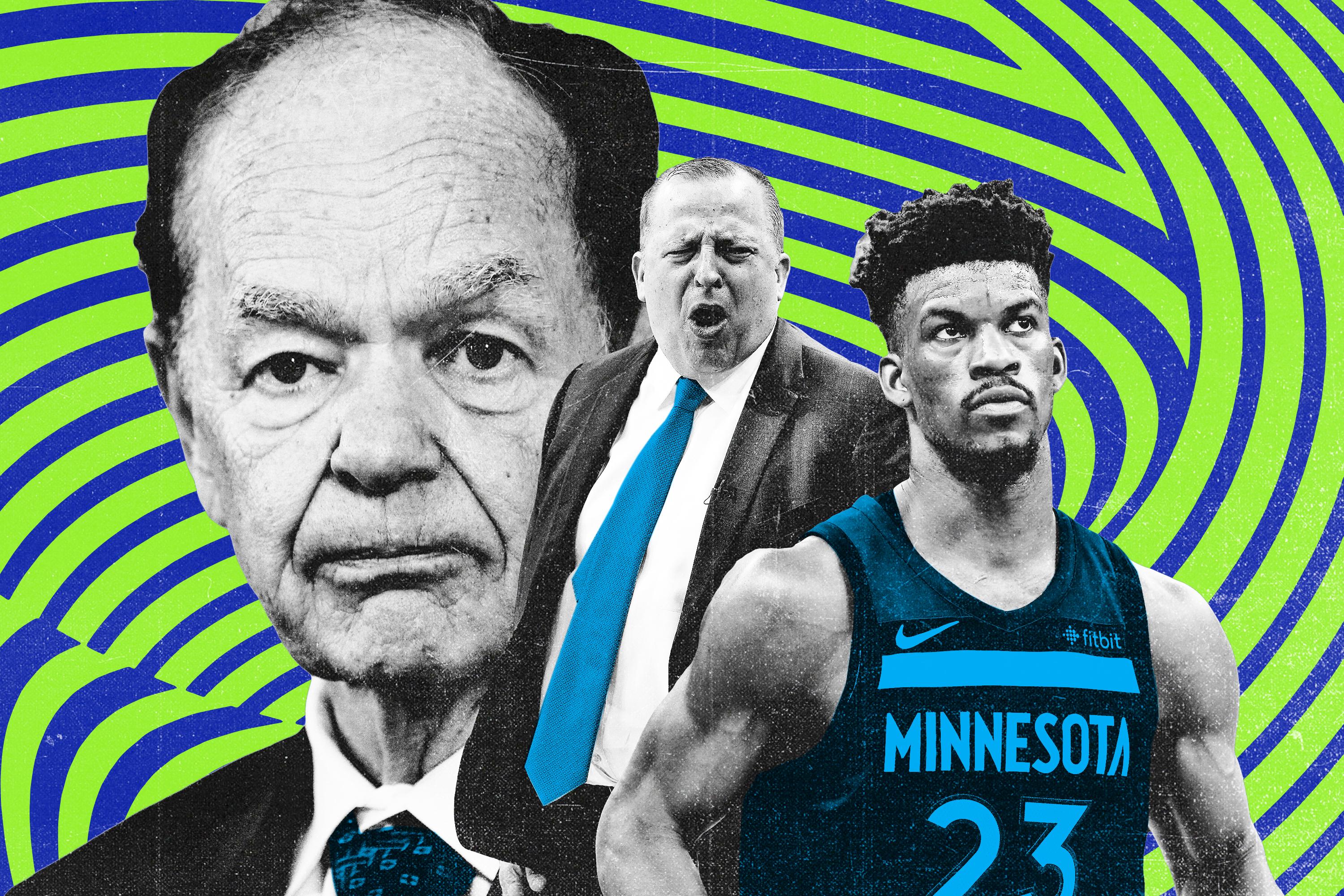
Anyone who grew up as a sports fan in the ’80s is familiar with the Mad King Owner. The Mad King Owner wasn’t a hedge-fund guy or a bored billionaire looking to break out of the tech sector and rub elbows with jocks. The Mad King Owner didn’t see sports as a lifestyle, he didn’t see players as his partners, and he didn’t really care about “culture.” Mad King Owners weren’t visionaries—they were businessmen, real estate tycoons, local industrial powerhouses. Owning a franchise meant having a place to take their friends and be big shots. Having a team was the icing on the cake, and they did whatever they wanted with it. They fell out with stars, hijacked trades, fired coaches, and freelanced on draft picks. For the Mad King Owner, sports weren’t a step toward global domination; they were a way to consolidate local power.
This has nothing to do with sanity (at least most of the time), and everything to do with running a team like a fiefdom. Growing up a Philadelphian, I had my share of Mad Kings—Harold Katz, Leonard Tose, Bill Giles. Los Angeles had Donald Sterling, New Orleans had Tom Benson, Oakland had Chris Cohan and Al Davis, New York had George Steinbrenner (and still has James Dolan), Baltimore had Bob Irsay (then didn’t). These guys didn’t always drive their teams into the ground, but if they did, that was their business, and you could take it or leave it.
To cheer for a team owned by a Mad King was to live life on the edge. At any given moment, the Mad King could Kool-Aid Man through the wall and destroy whatever momentum had been built up. There are a lot of egos in pro sports, but none was bigger, more powerful, or more disruptive than that of the Mad King Owner.
Mad King Owners have largely been driven out. It costs too much for anyone but the super rich—someone like Steve Ballmer or Tilman Fertitta—to buy a team. And the ones who are still around have been policed by the intense scrutiny of modern sports. So it was with some nostalgic amusement that I watched Minnesota Timberwolves owner Glen Taylor splash the pot in the game of poker between Jimmy Butler and the Timberwolves. The Mad King Owner was back.
By almost any measure, Taylor is super rich, but his wealth feels old-fashioned compared with the likes of, say, Sixers co-owner and Apollo Global Management cofounder Josh Harris. Taylor, a 77-year-old former state senator, is a lifelong Minnesotan who turned an investment in a wedding invitation company into a massive portfolio that includes everything from Flexo Impressions—which makes shrink sleeve labels—to the Star Tribune. But let’s be clear: This isn’t all Lake Wobegon and ice fishing. Despite Taylor’s somewhat homespun image (he was once described in a magazine profile as “a Wall Street mind who yearns for a weekend of farm chores”), he is a billionaire and a product of an era when player power was limited to what a 6-foot-9 man could do on the left block. Taylor has been known to throw his weight around, and that’s exactly what he’s doing now.
Last week, Butler requested a trade out of Minnesota, informing coach Tom Thibodeau that he had no interest in extending his stay once his contract expired next summer. Thibs, who essentially runs the Wolves along with his hand-picked general manager Scott Layden, was against trading Butler. It was only a little more than a year ago that the Wolves dealt Kris Dunn, Zach LaVine, and Lauri Markkanen to bring Butler in. He was supposed to yank the Timber Pups into adulthood, and into the postseason for the first time in more than a decade. Butler and Thibs have a relationship that goes back to their days in Chicago. According to ESPN’s Adrian Wojnarowski, Thibs was “willing to coach the Timberwolves through the dysfunction that has surrounded his star players.” He probably won’t have the chance. The Wolves are looking to get a Butler deal done before camp opens Tuesday, Woj reported.
Thibs runs the Wolves, but Taylor owns them. And despite the stance the Minnesota front office took, Taylor reportedly arrived at the league’s board of governors meeting with an open-for-business sign hanging around his neck. Handing over the basketball operational control to one of the most respected minds in the game, and then contradicting him when faced with one of the most crucial decisions in recent franchise history is extremely Mad King shit.
This is not the first time Taylor has faced a situation in which a star player wanted out of Minnesota. Each time—with Kevin Garnett and later Kevin Love—the player was traded and would go on to win the NBA title with his new team within two seasons. Taylor had parting shots for both Garnett and Love on their way out the door, and his strained relationship with the former has prevented the franchise’s greatest ever player from having a role with the team. There have been other eccentric moments throughout Taylor’s reign. The NBA suspended Taylor for his involvement in the Joe Smith fiasco. He was the owner of the Wolves when then–GM David Kahn drafted Ricky Rubio and Jonny Flynn over Steph Curry. When Andrew Wiggins was up for a big new contract extension, Taylor agreed, but said he wanted to look him in the eye first. This is a 20th-century owner with a 21st-century basketball franchise.
If Taylor still sees his franchise as his plaything, Thibodeau sees it as his cross to bear. Taylor exists in a fading past when owners make unilateral moves, completed at cigar-smoke-filled board of governors meetings (I’m adding the smoke for dramatic effect); Thibs is from a world where no adversity can’t be overcome by hard work. You say five-year plan? Thibs screams, “ICE!” You say rest is key in today’s NBA, Thibs plays Taj Gibson for 40 minutes on a Wednesday in February. You say the best coaches today are adaptable, charismatic, tactically improvisatory, and wear their shirt collars unbuttoned? I present to you Tom Thibodeau watching defensive rotations in a windowless basement video room, trying to figure out how to get more out of Nemanja Bjelica.
A few years ago, there was speculation that Taylor might sell the team, and that the Wolves could be a relocation candidate. But last year, the man who has owned the franchise since 1994 publicly committed to keeping the team in the Twin Cities and made a win-now move to hire the man who had led the Bulls to their greatest post-Jordan heights.
Thibs was a win-now move because there is no such thing as tomorrow to Tom Thibodeau. He is part of a coaching tree of sleepless, rumpled basketball addicts who crash on office cots with dry-erase marker stains streaking their shirts. This is the house Jeff and Stan Van Gundy built.
There is an alternate-universe version of the Timberwolves that has a starting five of Karl-Anthony Towns, Andrew Wiggins, Lauri Markkanen, Kris Dunn, and Zach LaVine. Maybe Ricky Rubio is still there. Maybe they don’t have more than $50 million tied up in Gibson, Gorgui Dieng, Jeff Teague, Derrick Rose, and Anthony Tolliver. Maybe the Towns-Wiggins team is Milwaukee West, a playoff team primed to go as far as its young stars can take it. But that team probably needed to be coached by Tony Bennett or Jay Wright or Shaka Smart or Jerry Stackhouse or some new voice that weighed long-term development against short-term mediocrity.
To Tom Thibodeau, losing is bad. He’s not a technocrat; he’s not a pundit-in-waiting; he is not a CEO who delegates responsibility; he doesn’t hand his players the whiteboard. He’s a basketball addict, and winning is the only fix he knows. To win, you work as hard as you possibly can, and you play your best, smartest players. A lot. He needed soldiers, he got himself Jimmy Butler, and based on the Wiggins family’s social media over the past week, it sounds like playing with Butler was the basketball version of serving with Sergeant Barnes in Platoon.
By some accounts, Thibs wanted to try to make it work with Jimmy. Taylor, who has been through the star breakup several times, wanted out and fast, before Butler could poison the locker room any more than he had. This past Saturday, the Wolves gave Towns the super-max extension. It was likely long in the works. But given the Butler news, it felt symbolic.
I don’t want to be the guy who says, “You know, this happens all the time in European soccer,” but situations like Jimmy Butler’s happen all the time in European soccer. The NBA is headed toward a transfer market, in everything but name. We can still bang our heads against the wall about assets, and leverage, and deadlines, but at the end of the day, if a star player doesn’t want to play for a team, he’s not going to play for that team. And more often than not, they get to dictate where it is they go.
This is the future of the NBA. This is one-and-one contracts and constant speculation about next moves. This is wondering about Anthony Davis for the next 24 months, and concern-trolling the Pelicans about whether they should get what they can for him now. This is Ben Simmons leaving Philly, and Giannis Antetokounmpo leaving Milwaukee, and Kevin Durant leaving Golden State. Player movement is reality bent toward the consumption habits of the modern sports fan. We are easily bored, and so are the players. The outlandish drama of these transactions keeps pace with the outlandish drama of our modernity. The paradox of this age will be that we have never been so aware of the importance of long-term planning—even the casual fan knows what “trust the Process” means, at this point—while being so impatient for the next big transactional drama. Maybe it wouldn’t matter who was coaching Minnesota; it would have fallen apart anyway.
There’s a lot about this Butler situation that’s about money. Butler wants as much as he can possibly get, the Wolves may or may not have wanted to give it to him. According to The Athletic’s Shams Charania, Butler met with Taylor in April, and a few months later he’s asking for a trade. But it might have been about more than money for Butler. This is what he told Charania last fall:
“When we spend time together, that’s what our time together is for. To get all of the terrible [expletive] habits out of the way. We have to be ready for what’s really coming … I’m never OK with that, and that should never be OK with anybody associated with me or this organization. Nobody cares about how young you are in this league. The culture that Thibs wants is not difficult: He wants you to play hard, he wants you to talk, and he wants you to guard. That’s all effort, the will to want to do it. If you want to do it, you will. If you don’t, you won’t. And it won’t fly, and you won’t play.”
Jimmy Butler may be the perfect Thibs floor general. Only he saw what his coach couldn’t: You cannot win with this team. Not really. Whether it was money or Wiggins’s perceived softness, Towns being as interested in playing video games on Twitch as he is in learning Thibs’s ball-side defensive warmongering, the Minnesota winters, or the simple fact he is 29, and this team is nowhere near good enough to compete in the Western Conference, Butler sees his future elsewhere. It’s up to the Wolves to see how much they get in return for granting his wishes.


